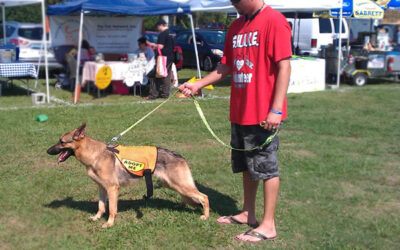 I’m already getting lots of calls from families that got a new puppy over the holidays. A LOT of calls. They want help, they already are stressed, and they can’t understand why their cute little dog is doing what it is doing.
I’m already getting lots of calls from families that got a new puppy over the holidays. A LOT of calls. They want help, they already are stressed, and they can’t understand why their cute little dog is doing what it is doing.
Let me give you some (not all) of the advice I would give you if I were to come out and help you with your new pup. 🙂
Most, the vast majority, of the problems people have with puppies is from lack of supervision. How can a dog eat the corner molding, chew your shoe, pee behind the couch, when you are looking right at it? Your puppy has zero idea as to what your house rules are, the pup came with no rules. So… we don’t leave puppies unsupervised in unsafe situations.
Got a New Puppy in The Dallas Area? Let Us Help (817) 308 5817!
Puppies should be kept in one of three states the first six months/year of their lives in my opinion. Here are those states:
1. If the dog isn’t under your direct supervision it should be crated. In the crate bad habits can’t be learned. Carnivores sleep a lot anyway and baby carnivores sleep even more. A lot of the bad behavior I see from puppies is just an exhausted over stimulated beast that needs some sleep. Puppies might need 18-20 hours of sleep a day. When parents see toddlers get out of control a nap is their first thought, but for some reason with dogs it is the last thought. Don’t just crate when you leave the house or at night (although do that too). Do not, do not, do not stick that cute little puppy in your bed to sleep at night. Be tough and teach the dog to sleep on its own in the crate. Many problems are avoided that way down the road.
2. If the dog is under your direct supervision then tether the dog to you or baby gate it into a small room THAT YOU ARE IN WATCHING DOG. We want to be able to give the dog immediate feedback when it starts to do something we don’t like. We can’t do that if we can’t see the dog. My grown dogs never chew shoes or eat underwear or socks because as puppies they never were allowed to do those things. When you are tired of supervising puppy, pop him/her back in crate.
3. If the puppy is outside some responsible person is outside with it at all times to help it make good decisions, and so it does not feel alone. A puppy that is worried about being deserted can’t focus on going to the bathroom, and so will wait until it gets back in the house and can relax.
There’s lots more to producing a dog that is an excellent companion but if you follow these three points to start you will be ahead of the game.
If you need more help with key items like socialization and potty training feel free to contact me at http://Redeemingdogs.com.





